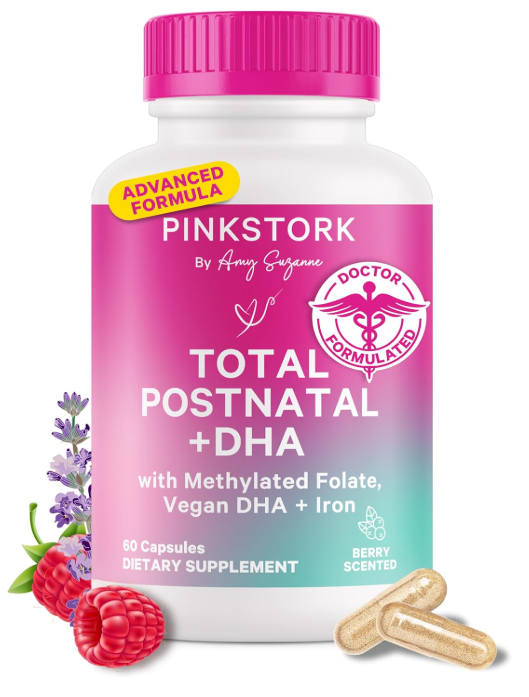
Navigating Postpartum Anxiety

Understanding Postpartum Anxiety
Postpartum anxiety is a type of anxiety disorder that can develop after childbirth, affecting numerous new mothers. While the transition into motherhood can be a time of joy and excitement, it can also be accompanied by a range of emotional and psychological challenges. Symptoms of postpartum anxiety may include persistent worry, restlessness, irritability, and difficulty concentrating. Many women experience intrusive thoughts about their baby’s safety or their ability to care for their child, which can exacerbate feelings of fear and inadequacy.
This condition might manifest differently among individuals, and its severity can vary greatly. Some mothers may find themselves obsessively checking on their baby, while others might feel overwhelmed by the responsibilities of motherhood. Women who have previously experienced anxiety disorders are often at a higher risk for developing postpartum anxiety, amplifying their concerns during and after pregnancy. It is essential to recognize that these feelings are not uncommon and do not reflect a mother’s capability or love for her child.
Common worries during the postpartum period can range from concerns about a baby’s health and development to the new mother’s physical and emotional well-being. These fears can lead to a sense of isolation, as many women feel embarrassed or ashamed to discuss their anxieties, fearing judgment or stigmatization. However, it is important to understand that postpartum anxiety is a legitimate mental health issue that many mothers experience, and it is not a reflection of their worth or competence as parents.
By normalizing these feelings and acknowledging that they are part of the motherhood experience, we can foster a supportive environment for new mothers. Seeking help and sharing experiences can alleviate the burden of postpartum anxiety and remind women that they are not alone in this journey.


The Power of Supplements: Pink Stork Experience
After giving birth, I encountered the inevitable challenges that came with the postpartum period, including anxiety and mood fluctuations. In my quest for effective solutions, I stumbled upon Pink Stork supplements, specifically their postpartum vitamin and probiotic. The decision to integrate these into my daily routine stemmed from extensive research on the nutritional needs during this crucial phase of recovery. The postpartum vitamin promised to address the nutrient deficiencies that often develop during pregnancy and childbirth, while the probiotic aimed to support gut health, which is often negatively affected after delivery.
Upon beginning the use of Pink Stork’s postpartum supplements, I noticed several positive changes in my overall well-being. The postpartum vitamin contained essential nutrients such as folate, iron, and vitamins A, C, D, and E, which contributed to my energy levels and emotional stability. Many mothers experience fatigue and nutrient depletion post-childbirth; thus, this comprehensive formula helped replenish vital nutrients, making daily life a little more manageable.
Additionally, the probiotic aspect of my routine aided in relieving some digestive discomfort, a common complaint during the postpartum period. Balancing hormones and managing anxiety can become overwhelming, but with the right nutrients, I found that I could focus on the joys of motherhood rather than the challenges. The combination of the postpartum vitamin and probiotic not only improved my physical health but also positively influenced my mental state, allowing me to feel more like myself.
The experience with Pink Stork supplements underscores the importance of a holistic approach to managing postpartum health concerns. For mothers considering similar options, I recommend looking into high-quality supplements that specifically cater to postpartum needs, as they can play a significant role in recovery and emotional well-being.

Transformative Insights: The Book ‘Unwinding Anxiety’
In my quest to manage postpartum anxiety, I discovered the insightful book ‘Unwinding Anxiety’ by Judson A. Brewer, a recognized neuroscientist known for his research in mindfulness and anxiety. My decision to read this book stemmed from a desire for a comprehensive understanding of anxiety, particularly how it can manifest during the postpartum period. Brewer’s credentials bolster the credibility of the information presented in the book, making it an invaluable resource for those seeking to understand the underlying mechanisms of anxiety.
‘Unwinding Anxiety’ fundamentally shifted my perspective on anxiety. Through its engaging narrative, Brewer emphasizes that anxiety is not merely a condition to be managed but a habit that can be unraveled. This distinction was crucial for me; it reframed my understanding of anxiety as something I could actively change rather than an unmanageable burden. The book delves into the neuroscience behind anxiety, explaining how our brains develop habitual responses to stressors. Brewer adeptly illustrates these concepts with practical examples, enabling readers to relate personally to the material.
One of the most beneficial aspects of ‘Unwinding Anxiety’ is its focus on actionable strategies. Brewer introduces mindfulness-based techniques, encouraging readers to explore their thoughts and feelings instead of avoiding them. He also provides comprehensive tools such as the ‘Unwinding Anxiety’ app, which further facilitates the implementation of these strategies into daily life. The app serves as a practical companion, reinforcing the principles outlined in the book and guiding users through the anxiety-reduction process. By integrating both theoretical insights and practical applications, Brewer offers an effective framework for overcoming anxiety, empowering readers to take actionable steps towards recovery.
The Road to Recovery: Support and Self-Compassion

The journey through postpartum anxiety can be overwhelming, yet it is essential to recognize that support systems play a crucial role in the path to recovery. Engaging with friends, family, and fellow mothers can create a network that fosters healing and understanding. Sharing experiences with others who have faced similar challenges provides invaluable validation and allows one to realize that they are not alone. Seeking help from professionals, such as therapists or support groups specifically tailored for new mothers, can also provide essential guidance tailored to navigate the emotional nuances of postpartum struggles.
Equally important is the practice of self-compassion. Mothers often place immense pressure on themselves to meet the demands of parenthood while struggling with mental health issues. It is vital to cultivate an internal dialogue that reflects kindness and understanding rather than criticism. Understanding that feelings of anxiety, fear, or guilt are valid is key to moving forward. By allowing oneself the grace to experience these emotions without judgment, mothers can begin to heal. Prioritizing self-care does not equate to selfishness; rather, it is an affirmation of one’s needs. Simple acts, such as taking short breaks, engaging in enjoyable hobbies, or practicing mindfulness and relaxation techniques, can significantly impact one’s mental well-being.
Connecting with other mothers also opens avenues for shared coping strategies, insights, and encouragement. Online forums, local mommy groups, or social media communities can bridge connections that foster a sense of belonging. These platforms can be lifelines, reminding individuals that there is hope and that recovery is attainable. It is paramount for mothers suffering from postpartum anxiety to recognize their feelings as natural responses to a significant life change. Emphasizing support and self-compassion can empower mothers in their quest for personal well-being, ultimately leading to healthier and more fulfilling experiences in motherhood.




